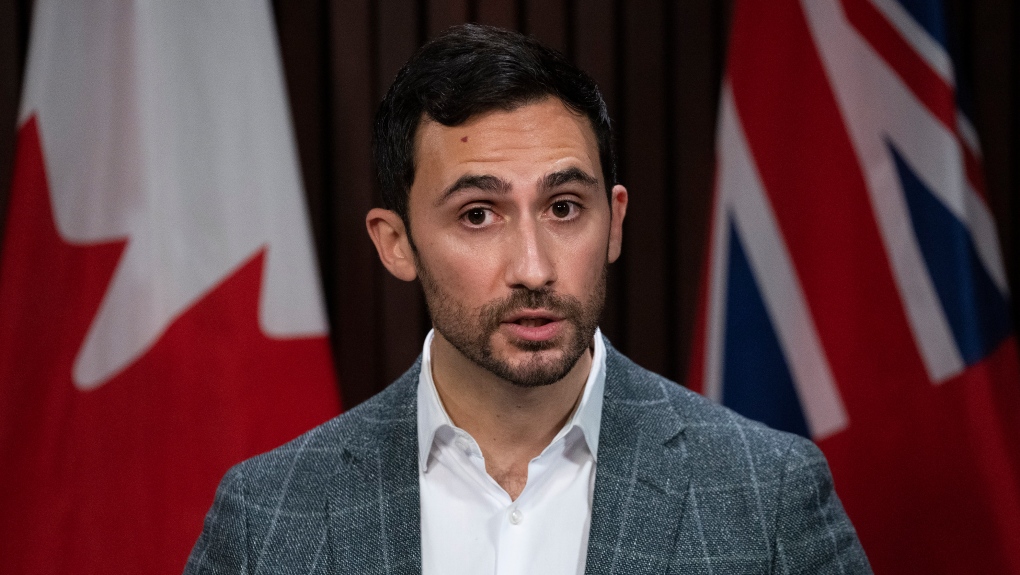Mediated contract negotiations between Ontario’s education workers and the province are continuing today at a downtown Toronto hotel, a day after the union was given the go-ahead to go on strike.
More than 50,000 custodians, early childhood educators, and school administration staff who work in the province’s public, Catholic, English, and French school boards have been without a collective agreement since Aug. 31. Despite several rounds of talks, a new contract has yet to be negotiated.
In early October, CUPE announced its members had voted 96.5 per cent in favour of walking off the job if a contract agreement could not be reached. The union then asked the Ontario Ministry of Labour to granted what is known as a no-board report, which means that a board of conciliation will not be appointed.
Shortly after the talks got underway Monday, CUPE learned its memberes have been given the go-ahead to legally walk off the job in 17 days time. The workers can go on strike on Nov. 3, if five days notice is given.
In an Oct. 17 tweet, the union said it would “use this time to build power amongst ourselves, students, families and our communities.”
Ontario’s Education Minister Stephen Lecce, in a statement provided to CTV News, said his side hopes CUPE will “bring forward reasonable requests that focus on students staying in class, not requests for a nearly 50 per cent increase in compensation.”
“Like parents, we believe strongly that students deserve to be in class catching up on their learning and are disappointed to hear the education union reconfirm to parents their intention to impose a strike on kids and their families,” he said late Monday afternoon.
 Stephen Lecce, Minister of Education for Ontario makes an announcement during the COVID-19 pandemic in Toronto on Wednesday, January 12, 2022. THE CANADIAN PRESS/Nathan Denette
Stephen Lecce, Minister of Education for Ontario makes an announcement during the COVID-19 pandemic in Toronto on Wednesday, January 12, 2022. THE CANADIAN PRESS/Nathan Denette
Lecce previously said that the government has provided a “reasonable offer that also protects the most generous benefits and pension plan in the country.”The Canadian Union of Public Employees (CUPE) is asking for a yearly wage increase of $3.25/hour (11.7 per cent) to keep up with inflation, a designated early childhood educator in every kindergarten class, minimum staffing requirements for educational assistants, library workers, secretaries, lunchroom supervisors, custodians, and maintenance workers and tradespeople to start tackling the $16 billion repair backlog, five additional paid days before the start of the school year, 30 minutes of paid daily prep time, an increase in overtime pay, and $100 million to create between 1,500 and 1,700 new jobs.
- Download our app to get local alerts to your device
- Get the latest local updates right to your inbox
The Ontario government, meanwhile, has said it is prepared to offer a four-year deal that includes a two per cent annual raise for workers who make under $40,000 and a 1.25 per cent yearly wage increase for those who make more. This amounts to a wage increase of 33 to 53 cents an hour.
Laura Walton, an educational assistant who serves as the president of CUPE’s Ontario School Boards Council of Unions, said they “want to reach a negotiated agreement that will guarantee service improvements for students, help solve school boards’ problems hiring and keeping qualified employees, and secure a significant wage increase for the lowest-paid frontline education workers that’s long overdue.”
“My coworkers across Ontario are expecting to see an offer that shows this government understands we’ve taken forced pay cuts for the last decade and now our wages are being eroded even more by high inflation. We welcome the assistance of a mediator to help us get a deal done that meets the needs of students, parents, and frontline workers,” she said in an Oct. 16 news release, calling the union’s proposal “reasonable, necessary, and affordable.”
Both the union and the province have indicated that they’re committed to coming to a reasonable contract agreement.
With files from The Canadian Press

Post a Comment